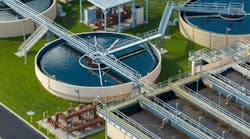Boston, MA, Dec. 13, 2012 -- CSG Holdings, Inc. paid $150,000 to resolve EPA claims that it allowed polluted stormwater and process water from its Columbia, N.H. facility to flow into nearby waters, violating Clean Water Act provisions to prevent pollution from stormwater runoff at industrial sites. CSG Holdings is the former operator of Columbia Sand and Gravel, a sand and gravel mining facility on the banks of the Connecticut River.
EPA alleged that CSG Holdings discharged process wastewater and stormwater from the facility without proper permits and violated the federal Oil Pollution Prevention Regulations by failing to prepare and implement a Spill Prevention, Control, and Countermeasure Plan. Monitoring confirmed that stormwater discharges from the facility contained high levels of total suspended solids, a pollutant that can adversely affect water quality and stress aquatic animals and plants.
The Clean Water Act prohibits the discharge of process wastewater without a permit and requires that industrial facilities, such as sand and gravel facilities, have controls in place to minimize pollutants from being discharged with stormwater into nearby waterways. Each site must have a stormwater pollution prevention plan that sets guidelines and best management practices that the company will follow to prevent runoff from being contaminated by pollutants. Without on-site controls, runoff from sand and gravel facilities can flow directly to the nearest waterway and can cause water quality impairments such as siltation of rivers, beach closings, fishing restrictions, and habitat degradation.
Every year, thousands of gallons of oil are spilled from oil storage facilities, polluting New England waters. Even the effects of smaller spills add up and damage aquatic life, as well as public and private property. Spill prevention plans are critical to prevent such spills or, if they do occur, adequately address them.
EPA is working to bring facilities in the aggregate industry into compliance with stormwater regulations. The effort includes enforcement actions and has also included development of written materials, web sites, workshops and other products to help those involved in sand and gravel mining to understand how to comply with stormwater laws at their facilities.
More information: Clean Water Act enforcement in New England (http://www.epa.gov/region1/enforcement/water/index.html).
###

